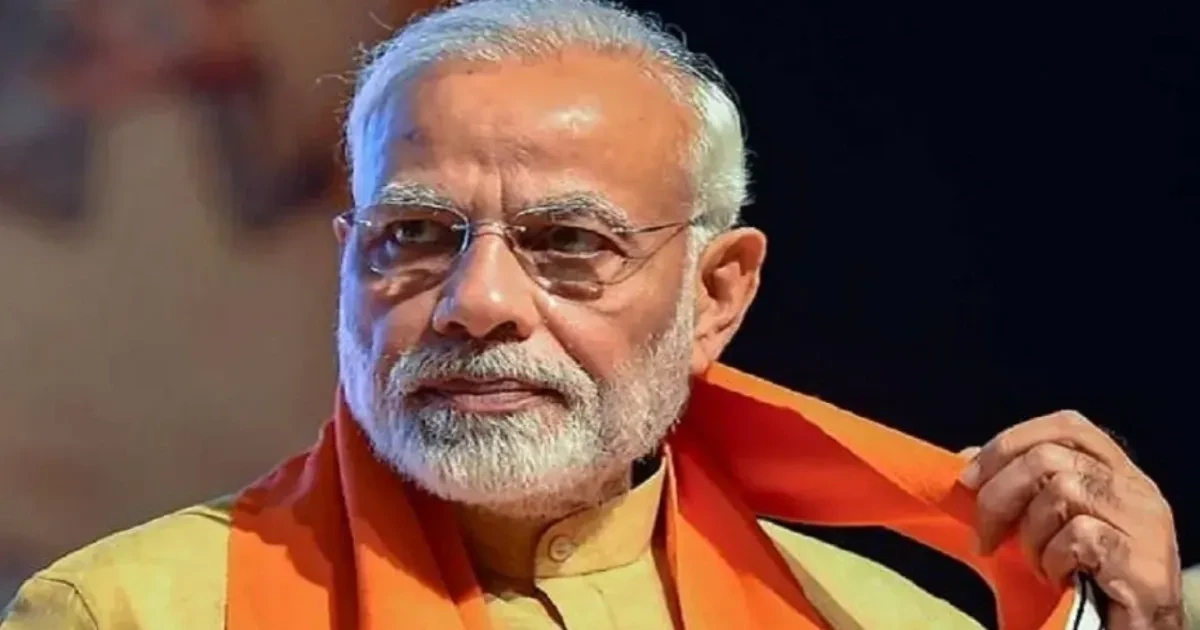Prime Minister Narendra Modi gently corrected a woman booth agent who addressed him as “sir,” insisting she call him “bhaiya” or brother instead.
“Women power is my greatest strength, my shield, and my endless inspiration,” he declared, underscoring his deep reliance on female supporters ahead of the crucial assembly elections.Broadcast via the NaMo app, Modi’s engaging session rallied party cadres, predicting a “double Diwali” for Bihar: one tied to the festive season and GST celebrations, and another on November 14 when NDA’s anticipated victory results are announced. “Bihar’s sisters and daughters will lead this triumph,” he beamed, urging women to turn out in groups, singing festive songs and clanging thalis (metal plates) as they vote – transforming polling day into a vibrant “festival of democracy.”
With Bihar’s 243-seat assembly polls set for November 6 and 11 phases, and counting on November 14, Modi emphasized grassroots mobilization. He instructed booth workers to organize special Bhai Dooj events on October 23, honoring “sisters” in their areas and spotlighting success stories like ‘lakhpati didis’ – women who’ve become millionaires through self-help groups – and ‘drone didis’ trained in operating drones for agricultural and mapping tasks under government schemes.”Every booth worker is Modi in their locality,” he empowered them, tasking cadres to personally guarantee the benefits of central and Nitish Kumar-led state initiatives to voters. Workers should visit every household, share explanatory videos on welfare programs, and chant the unifying slogan: “Ekjut NDA, Ekjut Bihar – Isse banegi sushashan ki sarkar” (United NDA, United Bihar – This will form a good governance government).
Greeting participants in local Bhojpuri dialect for that personal touch, Modi stressed that “a strong booth ensures party victory.” He urged youth outreach, warning against forgetting the “jungle raj” era under RJD rule, marked by lawlessness, kidnappings, and Naxalite dominance. “Take young voters to exhibitions showcasing those dark days’ atrocities,” he advised, cautioning that returning RJD-Congress to power could revive Naxalism and chaos. “Bihar’s votes have shielded the state before, and they’ll do it again,” he asserted.
This comes as the BJP released its second list of 12 candidates, injecting star power with Maithili Thakur, a renowned folk singer, contesting from Alinagar, and Anand Mishra, a retired IPS officer known for his anti-corruption stance, from Buxar. The moves aim to blend cultural appeal with administrative credibility in a state where alliances and caste dynamics play pivotal roles.
Modi’s focus on women aligns with NDA’s campaign thrust: empowering over 2 crore women through schemes like Mudra loans, Ujjwala gas connections, and Lakhpati Didi targets, which have reportedly lifted millions out of poverty. In Bihar, where female voter turnout often exceeds men’s, this strategy could prove decisive against the opposition Mahagathbandhan.As campaigning intensifies, with rallies, door-to-door drives, and digital pushes, Modi’s brotherly camaraderie and anti-“jungle raj” narrative seek to galvanize the NDA base. Political analysts note that evoking past misrule resonates in rural pockets scarred by 1990s-era violence, while welfare pledges address aspirations of a youthful electorate.
Meanwhile, opposition leaders like Tejashwi Yadav counter with promises of jobs and caste censuses, setting up a fierce ideological clash. With Naxalism largely contained under the Nitish-Modi partnership, the elections test whether development trumps dynasty politics in Bihar’s complex socio-political landscape.
Security remains tight, with central forces deployed to ensure free polls amid sporadic tensions. As Diwali approaches on October 20, Modi’s vision of electoral fireworks on November 14 hangs on turning inspiration into votes, one booth at a time.
